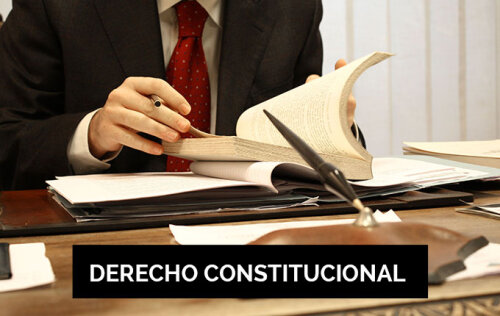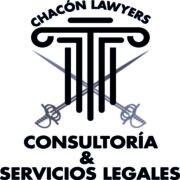Best Climate Change Law Lawyers in Colombia
Share your needs with us, get contacted by law firms.
Free. Takes 2 min.
Or refine your search by selecting a city:
List of the best lawyers in Colombia
About Climate Change Law in Colombia
Climate Change Law in Colombia is an evolving legal field developed to address the country's contribution to and vulnerability from global climate change. As a signatory to international agreements such as the Paris Agreement and the United Nations Framework Convention on Climate Change (UNFCCC), Colombia has created a framework of national laws and policies aimed at reducing greenhouse gas emissions, promoting sustainable development, and adapting to the impacts of a changing climate. The Colombian government has set out its climate goals and strategic responses in documents such as the National Climate Change Policy, the Nationally Determined Contributions (NDC), and the Framework Law on Climate Change (Law 1931 of 2018). The law establishes obligations for both public and private entities on mitigation, adaptation, and environmental reporting.
Why You May Need a Lawyer
Legal matters related to climate change can be complex and require specialized knowledge. You may need the assistance of a lawyer in situations such as:
- Understanding your obligations as a business, especially if your activities impact the environment or produce significant emissions.
- Seeking permits and authorizations for projects that may affect the climate or natural resources.
- Challenging or defending enforcement actions by environmental authorities.
- Navigating policies surrounding offsets, carbon markets, or sustainable development mechanisms.
- Pursuing judicial or administrative actions related to environmental harm or climate inaction.
- Participating in government decision-making processes on climate adaptation and mitigation policies.
- Advising communities vulnerable to the effects of climate change.
Local Laws Overview
Colombia has developed a comprehensive legal architecture to address climate change. Here are some key aspects:
- Law 1931 of 2018 (Framework Law on Climate Change): Sets the national framework for climate action, establishing principles, responsibilities, and mechanisms for coordination among state entities.
- Decree 926 of 2017: Regulates the use of carbon markets and defines the mechanism for emission reduction certificates.
- National Policy on Climate Change (PNCC): Defines strategies for mitigation and adaptation at national and sub-national levels.
- Nationally Determined Contributions (NDC): Details Colombia’s international commitment to reduce emissions and adapt to climate change impacts.
- Environmental Impact Assessments (EIA): Many development projects must evaluate climate-related impacts as part of the licensing process.
- Participation and Consultation: Laws mandate public participation and, where applicable, prior consultation with affected communities and indigenous groups, particularly for projects with climate implications.
- Integration with Sectoral Policies: Sectors such as agriculture, energy, and transport have specific responsibilities to align with climate objectives.
Frequently Asked Questions
What is the Framework Law on Climate Change in Colombia?
The Framework Law on Climate Change (Law 1931 of 2018) is a comprehensive national law that sets out Colombia’s legal framework for managing climate change mitigation and adaptation across sectors. It establishes responsibilities for government levels, the private sector, and citizens.
Who enforces climate change laws in Colombia?
Climate change laws are primarily enforced by the Ministry of Environment and Sustainable Development (Ministerio de Ambiente y Desarrollo Sostenible), with coordination from regional environmental authorities and other government agencies depending on the sector involved.
Are companies required to reduce their greenhouse gas emissions?
Certain companies, especially in high-impact sectors, have reporting obligations for their emissions, and may be required to adopt reduction measures. The government also encourages participation in voluntary carbon markets to mitigate emissions.
How do climate change laws affect infrastructure or construction projects?
Projects must often undergo environmental impact assessments that consider climate risks and impacts. Approval may depend on proper mitigation and adaptation measures being incorporated.
Can individuals or communities take legal action if climate laws are violated?
Yes, citizens and communities have rights to file legal actions such as tutela actions or popular actions if their constitutional rights to a healthy environment are at risk, or if climate laws are not enforced.
What is the role of carbon markets in Colombia?
Carbon markets allow for the trading of emission reduction certificates. Companies can offset part of their emissions by investing in certified projects that reduce greenhouse gases, contributing to national climate goals.
How does Colombia address adaptation to climate change?
Adaptation is integrated into policy at national, regional, and local levels, with specific plans for risk management, infrastructure, agriculture, water resources, and particularly vulnerable communities.
Do climate change laws apply to small businesses or only large industries?
While large companies have more direct obligations, small and medium-sized enterprises may also be affected by sectoral regulations, supply chain requirements, or opportunities to participate in sustainable initiatives.
What are the penalties for violating climate change laws?
Penalties can include fines, suspension of licenses, or mandatory restoration measures. The severity depends on the nature and extent of the violation.
How does Colombia’s law protect vulnerable or indigenous populations from climate impacts?
Colombian law requires prior consultation with affected indigenous or Afro-Colombian communities for projects with environmental and climate impacts, and there are special provisions for risk management and adaptation planning for vulnerable groups.
Additional Resources
For more information or guidance, you can consult the following resources and organizations:
- Ministry of Environment and Sustainable Development (Ministerio de Ambiente y Desarrollo Sostenible)
- Institute of Hydrology, Meteorology and Environmental Studies (IDEAM)
- National Environmental Licensing Authority (ANLA)
- Regional Autonomous Corporations (CARs)
- Defensoría del Pueblo (Office of the Ombudsman) for environmental rights
- Colombian Environmental Law Society (Sociedad Colombiana de Derecho Ambiental)
- Non-governmental organizations such as WWF Colombia and Fundación Natura
Next Steps
If you believe you require legal assistance regarding climate change law in Colombia, you should:
- Identify your specific issue or concern, such as regulatory compliance, project approval, or defense against enforcement action.
- Contact a qualified environmental or climate change law attorney with experience in Colombian regulations and procedures.
- Gather all relevant documentation, such as permits, official correspondence, and details about your activities or community concerns.
- Consider reaching out to government agencies, non-governmental organizations, or community groups for initial guidance.
- Be prepared to participate in public processes or legal proceedings if necessary to protect your interests or advance compliance with climate regulations.
Seeking professional legal advice is recommended to ensure you understand your rights, obligations, and the best approach to resolving your climate change law issue in Colombia.
Lawzana helps you find the best lawyers and law firms in Colombia through a curated and pre-screened list of qualified legal professionals. Our platform offers rankings and detailed profiles of attorneys and law firms, allowing you to compare based on practice areas, including Climate Change Law, experience, and client feedback.
Each profile includes a description of the firm's areas of practice, client reviews, team members and partners, year of establishment, spoken languages, office locations, contact information, social media presence, and any published articles or resources. Most firms on our platform speak English and are experienced in both local and international legal matters.
Get a quote from top-rated law firms in Colombia — quickly, securely, and without unnecessary hassle.
Disclaimer:
The information provided on this page is for general informational purposes only and does not constitute legal advice. While we strive to ensure the accuracy and relevance of the content, legal information may change over time, and interpretations of the law can vary. You should always consult with a qualified legal professional for advice specific to your situation.
We disclaim all liability for actions taken or not taken based on the content of this page. If you believe any information is incorrect or outdated, please contact us, and we will review and update it where appropriate.
Browse climate change law law firms by city in Colombia
Refine your search by selecting a city.















